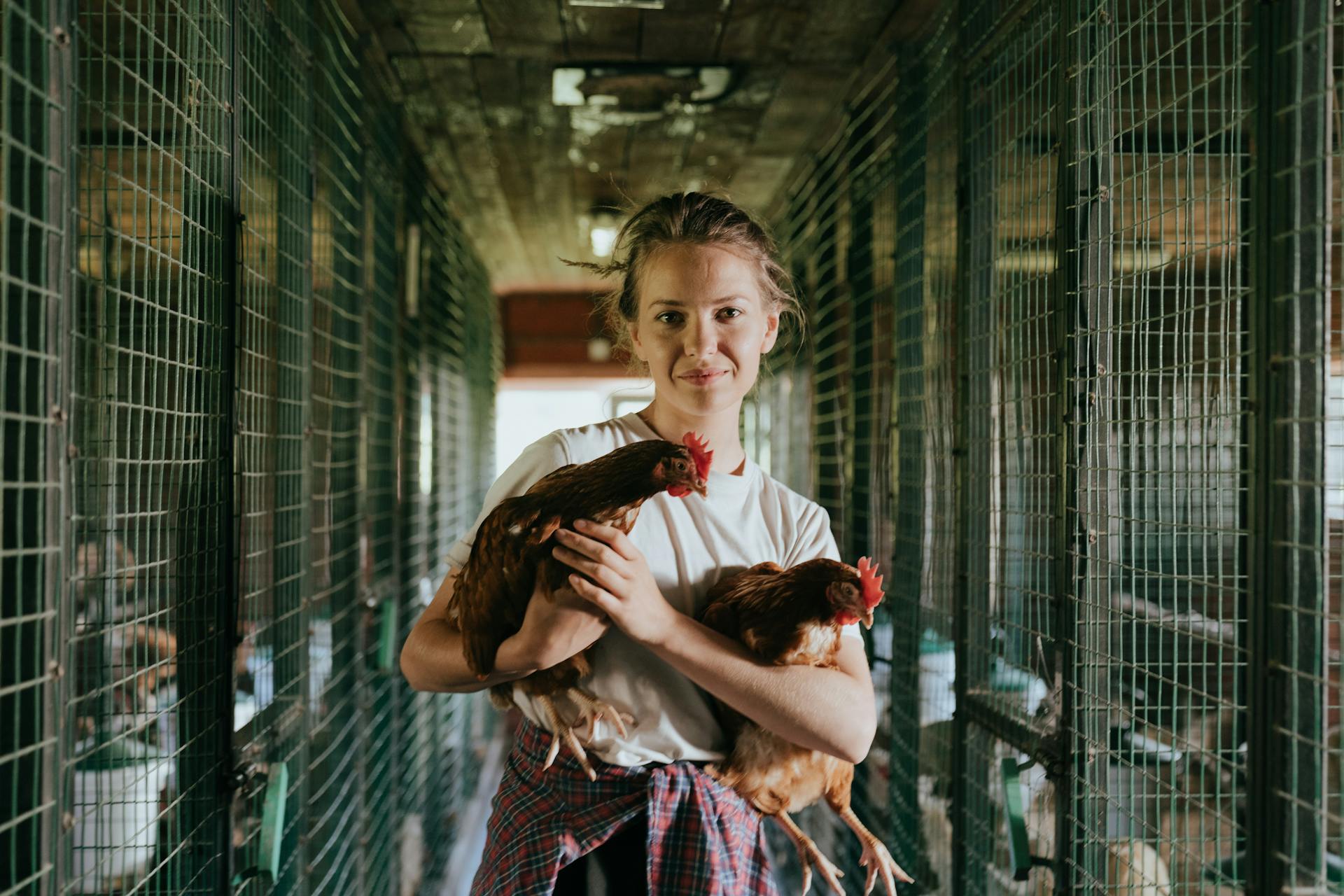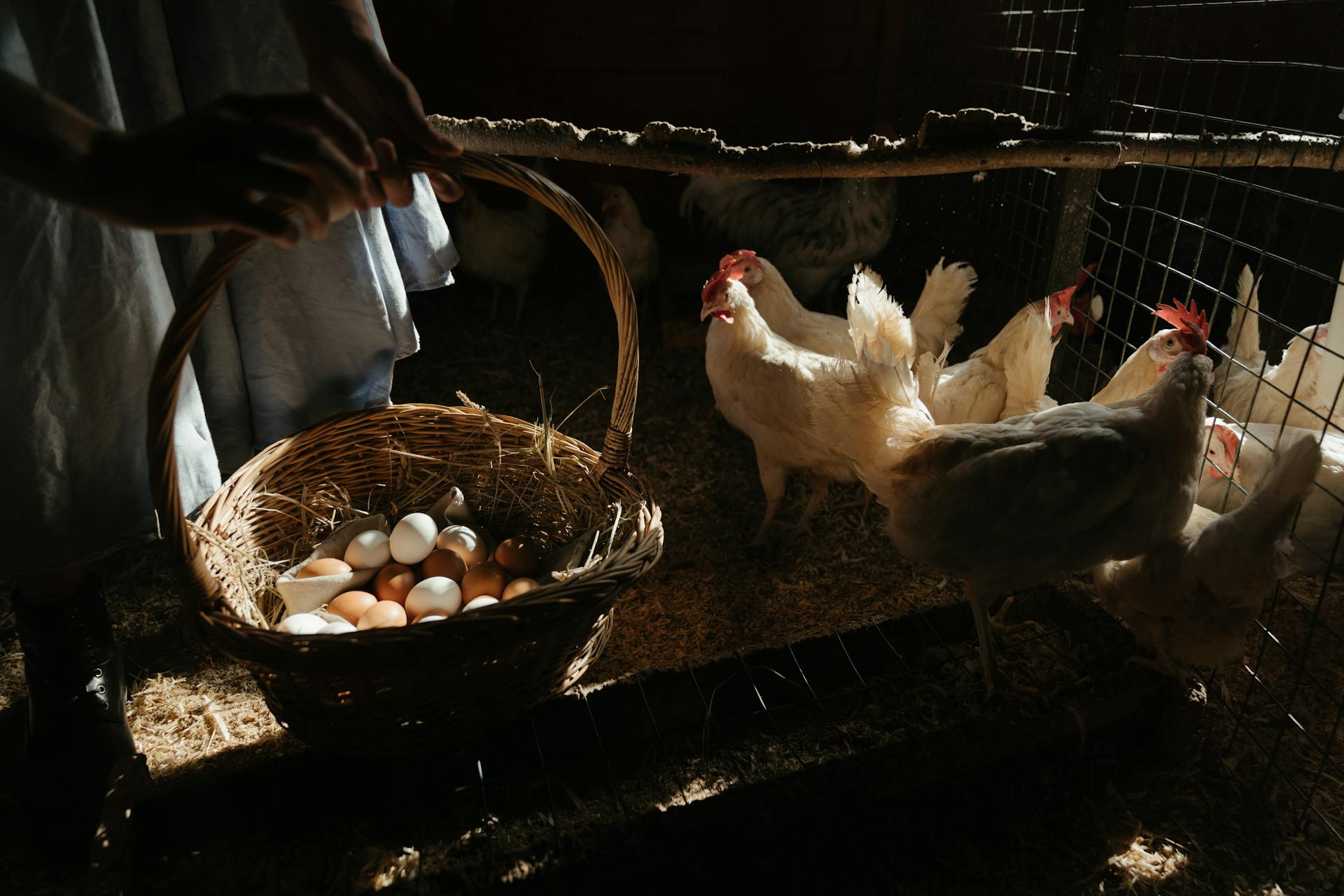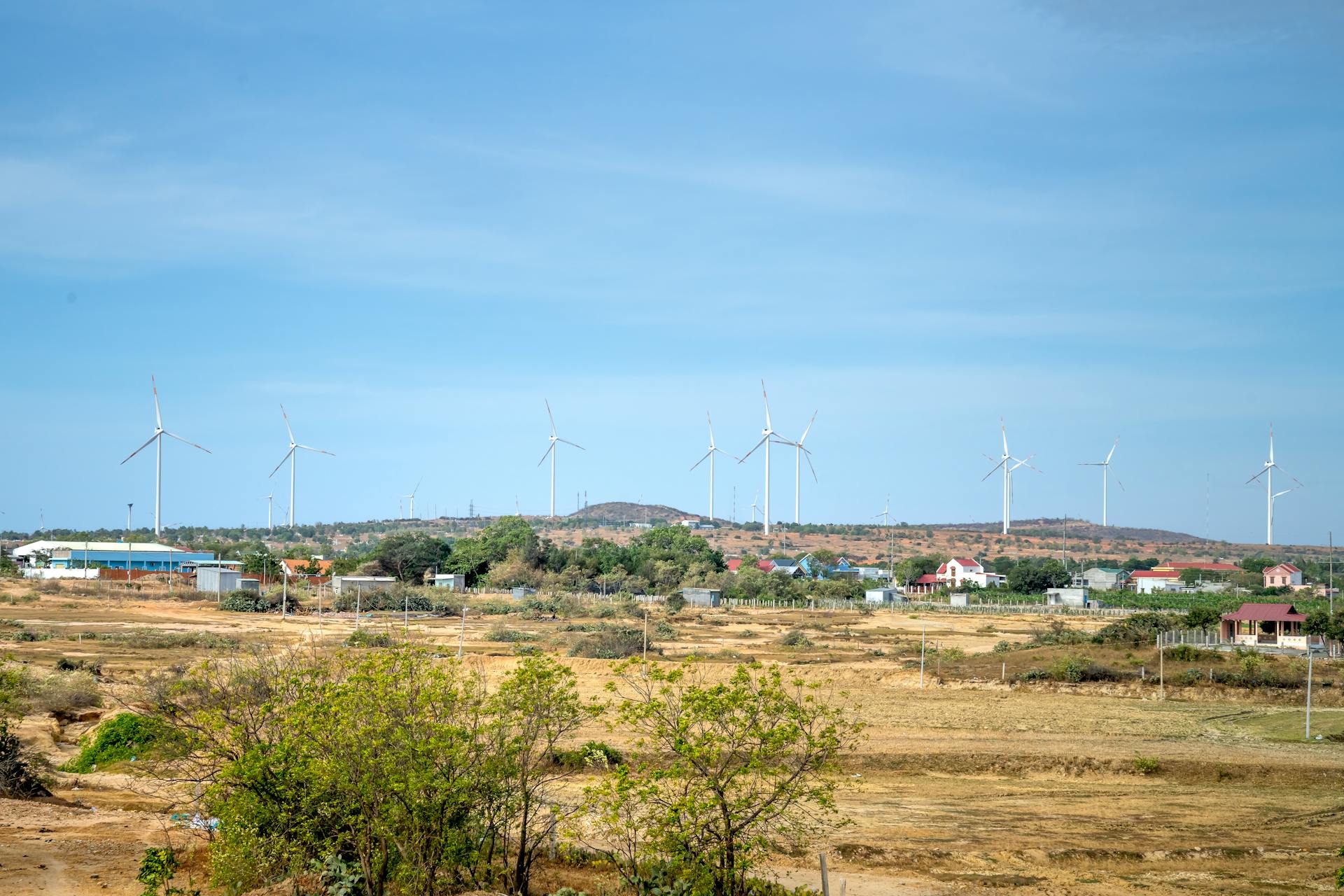
In today's consumer-driven society, more and more people are seeking an alternative lifestyle that is centered around sustainability and self-reliance. This is where homesteading basics come into play. Homesteading has become a popular way of life for those who want to break free from the constraints of modern society and embrace a more self-sufficient and sustainable model of living.
Whether you're a modern homesteader looking to establish your own farm or just starting out with a small garden, understanding the homesteading basics is crucial for success. From growing your own food to raising livestock and even building your own home, the possibilities are endless when it comes to homesteading. But before you dive in headfirst, it's important to have a solid foundation in the fundamentals of this rewarding lifestyle. In this ultimate guide for new homesteaders, we'll cover everything you need to know about the basics of homesteading so that you can start living off the land with confidence.
Begin Your Homesteading Journey with These Simple Tips
Are you considering homesteading? Starting your journey can be overwhelming, but don't worry! Here are some simple tips to get you started. First, start simplifying your life by cutting out unnecessary activities that waste your time and money. Making budget-friendly choices is crucial, especially if you have outstanding loans, mortgages or credit card debt.
Secondly, build a support network of experienced mentors who can guide you through the process of homesteading. Having a strong support system is a wonderful thing because it ensures you're rarely alone in your journey. You'll need all the help you can get when starting your homestead, so seek guidance from those who have already done it.
Lastly, start gardening! Starting small with milk crate gardening or placing seeds directly in the soil and watering them regularly is an excellent way to begin growing your food. Letting good soil do its job will also help ensure that crops grow well even when you're low on resources like water or fertilizer. With these simple tips, you'll be on your way to living off the land in no time!
Tips for Starting a Homestead Without Spending Money
Starting a homestead can seem daunting, especially if you don't have a lot of money to invest. But there are several ways to get started without breaking the bank. One way is to use scrap wood and milk crates to build simple structures like raised garden beds, chicken coops, and nesting boxes.
Another way to save money when starting a homestead is to find local farmers who are willing to share their knowledge and resources. You might be able to get free or low-cost seedlings, animal feed, and other supplies from nearby farms. Plus, you'll have the opportunity to practice animal care and learn about sustainable farming practices from experienced farmers.
Finally, consider making your own soap and preserves using soap-making kits jelly jam-making kits. These can be purchased online for relatively little money and can provide you with valuable skills that will save you money in the long run. Remember that starting a homestead takes time and patience, so don't lose hope if things don't go according to plan at first. With some creativity and resourcefulness, you can build a thriving homestead without spending a lot of money upfront.
The Journey of Homesteading: Starting from the Basics
Homesteading has come a long way since the sprawling farm days of the past. The modern homestead movement homesteading doesn't require vast acres of land to get started. It simply involves adopting a healthier lifestyle by growing your own food, raising animals, and becoming more self-sufficient.
Starting from the basics means learning how to grow your own food, whether it's in a backyard garden or on a larger scale. You'll need to understand soil health, seed selection, and proper watering techniques. As you become more comfortable with gardening, you can expand to include raising chickens for eggs or goats for milk.
Becoming a homesteader is not just about gaining knowledge; it's also about continually learning and adapting as you go. By starting small and building your skills over time, you can create a more sustainable and fulfilling lifestyle that benefits both you and the environment around you.
Get Started with Homesteading Basics!

Homesteading may seem daunting, but it's really about self-sufficiency and living off the land. To demystify homesteading, it's important to start small. You don't need acres of land to begin farming and raising animals. Start with a few chickens or a small vegetable garden to get a feel for homesteading skills.
Focus on one area of homesteading each year, focusing on learning additional skills and expanding your farm or animal operations as you gain experience. Remember that homesteading is hard work, so start small and take actionable steps toward your goals. A homesteader works toward self-reliance by growing their own food, raising their own animals, and living simply. Whether you're interested in canning vegetables or making cheese from goat milk, there are many aspects of homesteading to explore!
1. Set Goals, Research and Define Priorities
One of the first steps to starting your homesteading journey is setting goals, researching and defining priorities. Before you jump in, take some time to spend brainstorming what you want to accomplish and how you want to live. This can be done in as little as 30 minutes a day or an hour per week. By doing this, you can figure out what homesteading projects are most important to you and set small baby step goals that will help you achieve your larger end goal.
Research is key when it comes to homesteading basics. You need to research set up costs, zoning laws, animal care, crop rotation, and more before starting any project. By taking the time to do your research upfront, you will save yourself a lot of headache down the road. Define your priorities and make sure they align with your lifestyle goals so that you can enjoy every moment of your homesteading journey!
2. Don’t Forget the Infrastructure
Don't overlook the importance of homestead infrastructure! Experienced homesteaders aren't kidding when they say that a solid foundation is key to making your homesteading journey a successful one. Making mistakes when building things can be costly, so it's important to take the time and do it right.
From water lines to off-grid solar, energy alternatives, and pathway set up, there are many components to consider in your homestead's infrastructure planning. It's essential to keep safety in mind as well - you want to ensure that all equipment is safe for use on your property. Stay flexible and adaptable as you build out your homesteading infrastructure - it may take time, but with careful planning and execution, your homestead will be ready for whatever challenges come its way!
3. Homesteading Basic Skills
Being a modern homesteader has its own set of challenges, but with the right homesteading basics, it doesn't matter where you live or what your background is. One of the first skills to start with is cooking. Produce shopping at your local farmers market for fresh homegrown produce is a great way to start meal planning. Remember that core meal planning is an important part of healthier living.
Food gardening growing tomatoes, and other foods are a popular homesteading skill. Harvesting, cooking, and preserving your own food will save money and ensure you're eating healthy. Raising chickens can also be a great resource for fresh eggs while providing companionship. Keeping a clean space is essential to staying organized and running efficiently. Homesteaders spending time repairing items or reducing electric bills can also reduce their carbon footprint. It's important to stay organized by keeping important records and dates in one place to make staying organized a great life skill for any modern homestead.
Discover the Basics of Homesteading
Are you interested in homesteading but feel lost in all the jargon flying around? Don't worry, we've got you covered. Let's break down some common practices and answer some of your concerns surrounding this lifestyle.
One of the most common questions about homesteading is where to start. Start small and focus on one or two things at a time, like growing vegetables or raising chickens. As you gain confidence and experience, you can expand your homesteading activities. Remember that there is no one-size-fits-all approach to homesteading, so find what works best for you and your family.
1. What Does Homesteading Mean?
The term homesteading refers to the act of creating a self-sufficient life on a piece of land. The word homestead typically refers to the surrounding land owned by a person or family, where they may engage in activities such as raising livestock and growing crops. Historically, homesteading has been around for centuries past but has evolved to have a broader definition in modern times. Nowadays, it encompasses everything from sustainable living practices to off-grid living and more.
2. What Does Homesteading Involve?
Homesteading essentially involves practices that lead to an independent greener lifestyle. It typically entails growing one's own food, raising livestock for eggs, milk, or meat, and adopting renewable energy options. Homesteaders often strive to reduce their dependence on outside sources and live off the land as much as possible.
Living a homesteading lifestyle requires a lot of hard work and dedication. It involves learning traditional skills like gardening, preserving food, and carpentry. Homesteaders also need to be able to care for animals like chickens, cows, and goats. While it may seem overwhelming at first, many people find that homesteading brings them a sense of fulfillment as they take control of their own lives and become more self-sufficient.
3. Why Is It Called Homesteading?
Homesteading is a phrase that has been around for quite some time. It refers to the act of settling on public land provided by the government. The term originated from the Homestead Act, which was signed into law by Abraham Lincoln in 1862. This act essentially granted current and future citizens 160 acres of western land for a small registration fee, encouraging settlement and agriculture in the late 19th and early 20th centuries.
The Homestead Act allowed individuals to claim land as their own, giving them an opportunity to build homes and start their own farms. The phrase homesteading became synonymous with this process, as many people were required to improve upon the land they claimed and make it habitable. Through this initiative, many families were able to achieve financial independence and realize their dreams of owning property. Today, homesteading has evolved into a lifestyle choice for individuals who want to live off the land and be self-sufficient.
Frequently Asked Questions
How to start a homestead?
To start a homestead, first assess your land for its suitability for agriculture and livestock. Then, develop a plan for what crops and animals to raise, and acquire the necessary tools and equipment. Finally, research and learn about sustainable living practices to ensure the success of your homestead.
How much land do I need to homestead?
The amount of land required for homesteading depends on the individual's needs and goals, but typically ranges from 1-10 acres. Factors such as location, soil quality, and climate should also be considered.
What is the purpose of a homestead?
The purpose of a homestead is to provide a self-sustainable living environment for individuals or families, typically through farming, gardening, and raising livestock.
What are the different types of homesteading activities?
Homesteading activities can include gardening, livestock-raising, preserving food, making crafts and clothing, building structures, and generating energy.
What are the most important homesteading skills?
The most important homesteading skills include gardening, food preservation, animal husbandry, and basic carpentry. These skills are essential for self-sufficiency and sustainable living on a homestead.
Featured Images: pexels.com


